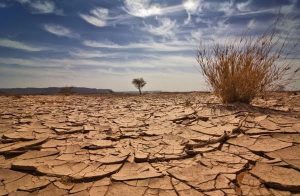Aisha is a single mother of two living on the margins of a sleepy town that rolls into the countryside. With no education, she struggled for a long time to get by on what little she could grow on the reluctant patch of land where she lived, especially after her husband died. Then a grassroots non-governmental organization came along and trained her, along with a few other women, on how to start small businesses making and selling clean cookstoves and solar lamps. Aided by a revolving fund set up by the NGO, she started selling those products piecemeal to her peers in the village, essentially cashing in on the trust that she had built with those women over time. Further down the line, she teamed up with other women in her rotating savings group to send her products to markets far beyond her immediate vicinity. In the absence of any property she could use as collateral, Aisha leveraged her membership of the group to access low-interest loans from a local microfinance bank. She used the loans to expand her business, and in a few years, she had comfortably seen her elder son through high school and was planning to enroll him in driving school while he waited for admission to the university. Not a bad achievement for a widow in an isolated peri-urban outpost who herself had no formal schooling. This is the kind of difference that small investments in clean energy businesses can make.
Globally, micro, small and medium enterprises are recognized as engines of growth. In Nigeria, where the clean energy market is still emerging, there is an exciting opportunity to establish and nurture MSMEs within the sector. A number of organizations have taken up the challenge; an example is Clean Technology Hub which under its ‘Promoting Citizen’s Access to Off-the-Grid Clean Energy Solutions’ project funded by the Open Society Initiative for West Africa (OSIWA) is increasing awareness of MSMEs, particularly female-owned ones, on how off-grid clean energy solutions can grow their businesses as well as the entrepreneurship opportunities that exist with regards to these solutions.
However, more needs to be done by a wider range of public and private entities to ensure that the potential for growth in the sector is fully realized. The need for intervention is especially great among women entrepreneurs who typically start out with fewer resources than men at similar socio-economic levels, potentially limiting their ability to take advantage of opportunities in the sector.
Aisha’s story illustrates the kinds of external inputs that can provide a boost to clean-energy MSMEs run by women in rural and off-grid areas:
Provision of training and seed funding to women entrepreneurs in so-called last-mile communities: Women, with their vast social networks, are well-placed to spread awareness of clean energy products even within the remotest of communities. However, they need to be trained in the first instance in technical areas such as marketing and financial accounting if they are to go on and build viable businesses. Given the resource-constrained contexts under consideration, external funding often needs to play a role, both in delivering the required training and in helping women get their new businesses off the ground.
Design of innovative financing mechanisms for end-users of clean-energy technologies: Women entrepreneurs in rural areas often sell to people who themselves have little cash to spare upfront. Such customers have been known to willingly pay for energy products in kind, such as with chickens and farm produce. While this solution may not work in all contexts, there is a lesson that would-be financiers can learn from it, namely that there is a high probability that end-users will subscribe to payment platforms that attempt to work around the very real financial constraints they face.
Tailoring communication strategies to address women in different socio-cultural environments: Too often, rural women are written off by external actors as “illiterate” and therefore difficult to communicate with. In truth, these women embody forms of knowledge that are rooted in their life experiences, and which should inform the strategies that outsiders employ in engaging them. This implies a two-way knowledge exchange process involving mutual learning and cooperation between would-be entrepreneurs and end-users of clean-energy technologies on the one hand, and external facilitators on the other.
Sustaining networks of women-owned MSMEs in rural communities: In the absence of formal mechanisms for obtaining resources such as credit and infrastructure, women are often able to draw support through their membership of local peer groups and networks. As seen in Aisha’s case, such networks can help to amplify the impacts of individual effort. While local women’s groups are best left to form organically, external support in areas such as credit facilitation, conflict resolution, and market access can significantly expand their capacity to improve economic outcomes for individual members.
Women like Aisha abound across Nigeria – women with minimal education and resources but oodles of motivation and ambition. Investing in the clean-energy movement would provide a chance to bridge the gap between opportunity and reality. The potential payoffs are huge and diverse: we would empower women socially and economically, improve access to energy in areas that are off the grid, and promote environmental stewardship while we’re at it. This is the kind of future we want to create. It is in our power to do it.
Dr. Temilade Sesan is a lecturer and researcher at the Centre for Petroleum, Energy Economics and Law, University of Ibadan.





